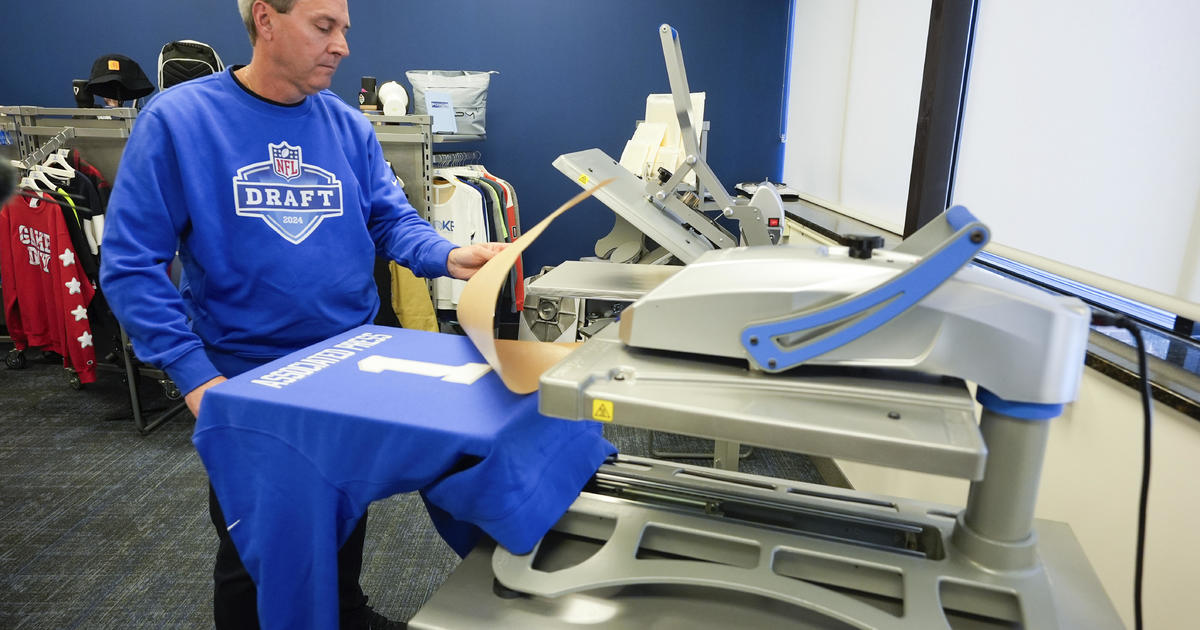MSU Study: US Citizenship Test Lacks Reliability
DETROIT (AP) - The life-changing decision of whether to award U.S. citizenship to more than a million people annually could be randomly decided and all comes down to $675 test that doesn't reliably measure an applicant's knowledge of the country, according to a Michigan State University researcher.
Paula Winke, assistant professor of second language studies at the East Lansing university, said it appears that a $6.5 million overhaul of the U.S. Naturalization Test hasn't made it more fair or standardized. Her findings come from a study published in the winter edition of the journal Language Assessment Quarterly.
"Your award of citizenship or being denied citizenship could be made at random," said Winke, who led a study in which 414 citizens and noncitizens took two mock citizenship tests based on questions asked by the U.S. Citizenship and Immigration Services.
Winke's study focused on the civics portion of the four-part test, which also includes reading, speaking and writing. The civics portion consists of up to 10 questions asked by an immigration officer on forms that are taken from a list of 100 questions published and available in advance for studying purposes. Applicants must answer at least six of the 10 civics questions to pass, and they will be retested within 90 days of the first test.
Applicants who are at least 65 years old and have been a legal, permanent U.S resident for at least 20 years only have to study certain questions on the list.
The Michigan State study came after the rollout of the revamped test, which incorporated consultations with many community organizations nationwide and "wasn't just arbitrarily made up by bureaucrats in Washington," said immigration services spokeswoman Marilu Cabrera. The result, she said, is a test that helps people become citizens and "fully incorporate into our society."
An average of 93 percent of applicants passed on the first attempt since the new U.S. Naturalization Test became mandatory in October 2009, Cabrera said.
Among the findings of Winke's study: 77 of 100 possible questions were equally difficult for both citizens and non-citizens. The category includes "Who was president during World War I?" and "How many justices are on Supreme Court?"
Of the remaining 23, the study found that 13 questions - such as "During the Cold War what was the main concern of the United States?" - were easier for the noncitizens to answer. The remaining 10 were easier for citizens and included, "Who is the governor of your state now?"
Winke said study findings show her that only 10 percent of the questions are working well, and finds the grouping of 13 "counterintuitive."
"These 13 questions I would recommend to be dropped, because they're not assessing a core, unique American civics knowledge," she said.
Of the 414 study participants, 136 failed both and 181 passed both. Winke said she's concerned about those in the middle: The 97 who passed one mock test but failed the other. For people on the bubble of passing or failing, she said, there's a risk that "depending on which test version you're given, you might pass or fail." In her study, that represents about one in four participants.
"We don't know in the real population how many people fall in that category, but it's frightening to know how many people that can be," she said.
To be sure, the questions are wide-ranging in degree of difficulty. Among the easiest is "Who is the president of the United States?" and the hardest includes "When was the U.S. Constitution written?" For the latter, Winke said the only 39 of the 414 participants in her study correctly answered 1787.
Winke said her data comes from a small sample and shouldn't be the final word on the test's reliability, but she recommends that the government publish the data to prove the test is reliable and equally weighted.
Cabrera said there are 10 forms each containing 10 questions, and all have been "weighted for equal difficulty."
"It's not up to the adjudicator," she said. "That's one of the reasons the test was redesigned - that uniformity did not exist to that level." She didn't know how an immigration official decides to select a particular version of the test but they receive ongoing training to ensure those and other functions of their job are done properly.
Lara Farhat, 36, is scheduled to take the test on March 27. The married mother of two, who lives in the Detroit suburb of Dearborn, said she came from Lebanon in 2004 with her husband, who has lived in the United States for about 25 years and assures her the test is easy. She's not so sure.
"It's hard to remember all this information," said Farhat, who has been studying while caring for her children and working in the emergency services department for a local social and economic assistance agency.
Still, she said, attaining citizenship in her adopted country has long been her goal.
"My children are citizens - they were born here," she said. "I want to be like them."
© Copyright 2011 The Associated Press. All Rights Reserved. This material may not be published, broadcast, rewritten or redistributed.



